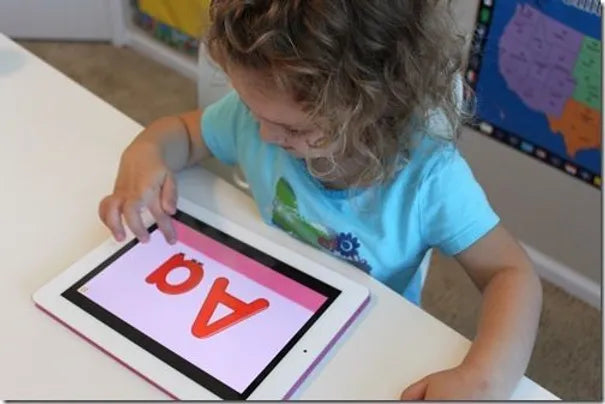Ahh, screen time – it’s a constant battle. But is our kids’ technology usage impacting their performance in the classroom?
A study by researchers at the University of South Australia suggests it is, and it’s something worth thinking about over the school holidays before the kids head back to school.
The research – which focused on the concerns of 41 South Australian preschool directors, but has national and even international implications – found that too much screen time, in lieu of quality play, is causing havoc for our children’s school readiness and putting them behind their peers when they start school.
“In our research, preschool directors indicate that families are overusing screens as ‘babysitters’ and that this could be contributing to lower levels of social skill development, concentration, problem solving abilities and self-regulation – all key skills that improve school readiness,” says paediatric expert and Director of UniSA’s International Centre for Allied Health Evidence, Dr Kobie Boshof. “The result is that many more preschools have children with greater needs, leaving them in desperate need for early childhood interventions such as occupational therapy, speech pathology and physiotherapy.”
Dr Boshoff says reducing children’s screen time and replacing it with more developmentally appropriate playtime will help improve poor rates of school readiness.
“School readiness is all about a child’s ability to make a successful transition from preschool into formal school,” says Dr Boshoff. “Providing this support is vital to ensure that children have a positive experience of the early years of school and that strong foundations for learning occur from day one.”
Australian health guidelines for preschool-aged children (2-5 years) recommend no more than one hour of screens per day, which includes television, computers and smart devices.
“While screen time has certainly become a normal part of everyday life, there has to be a balance, and we must educate parents about the adverse effect of too much screen-time on children’s development,” Dr Boshoff says. “Young children need to be spending more time riding scooters, being outside, or playing with traditional toys such as blocks, cars, or puzzles.”
The old adage ‘everything in moderation’ couldn’t be more true when it comes to screen time, with experts stating that a balanced, healthy lifestyle should incorporate physical activity, positive playtime with family and friends, and time for your child to develop independence in their daily routines.
“We do need to support our children to make most use of their learning opportunities and if we can get the message out that we all, as a society, need to look out for how our modern lifestyles are influencing our children’s development, then perhaps we will start seeing some positive change,” says Dr Boshoff.
Screen-free activities to try instead:
- Reading and looking at books
- Listening to stories
- Painting and drawing
- Puzzles
- Gardening
Source: https://www.havenmagazine.com.au/is-screen-time-impacting-our-kids-in-the-classroom/?vgo_ee=hlLKrdqzmmn0O%2BRM9%2FgAGfLtqrI45kUjHEb2P2cCNWs%3D

